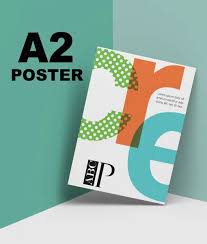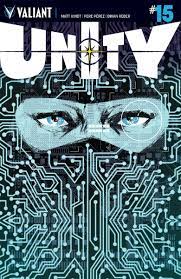The Art of Genre Literature Appreciation
Genre literature, encompassing a wide range of categories such as science fiction, fantasy, mystery, and romance, holds a special place in the hearts of readers around the world. While some may dismiss genre fiction as mere escapism or entertainment, its true value lies in the profound impact it has on individuals and society as a whole.
Diverse Perspectives
One of the key aspects of genre literature appreciation is the exposure to diverse perspectives and imaginative worlds that these genres offer. Science fiction takes us to distant galaxies and explores the possibilities of future technologies. Fantasy introduces us to magical realms and mythical creatures beyond our wildest dreams. Mystery keeps us on edge as we unravel intricate plots and solve perplexing crimes. Romance warms our hearts with tales of love and passion.
Critical Thinking
Appreciating genre literature goes beyond mere enjoyment; it involves critical thinking and analysis. Readers are encouraged to question societal norms, ponder ethical dilemmas, and contemplate existential questions through the lens of fantastical settings and characters. Genre fiction challenges readers to think outside the box and consider alternative perspectives that they may not encounter in their everyday lives.
Community Building
Genre literature appreciation also plays a significant role in community building. Fans of specific genres often come together to discuss their favourite books, attend conventions, and participate in online forums. These communities provide a sense of belonging and camaraderie among like-minded individuals who share a passion for storytelling.
Empathy and Understanding
By immersing themselves in genre literature, readers develop empathy and understanding towards others who may be different from them. Through characters facing adversity, overcoming challenges, or forming unlikely alliances, readers learn valuable lessons about resilience, compassion, and acceptance.
The Power of Imagination
Ultimately, genre literature appreciation celebrates the power of imagination. It invites readers to embark on epic quests, solve enigmatic puzzles, fall in love with fantastical beings, and explore uncharted territories—all within the pages of a book. The boundless creativity found in genre fiction inspires readers to dream big and envision a world where anything is possible.
Distinguishing Between Genre Literature and Literary Fiction
Exploring the Advantages of Immersing Oneself in Genre Literature
4. Enhancing Critical Thinking through Genre Literature:
- What is genre literature and why is it important?
- How does genre literature differ from literary fiction?
- What are the benefits of reading genre literature?
- Can genre literature help improve critical thinking skills?
- How can one develop a deeper appreciation for different genres within literature?
What is genre literature and why is it important?
Genre literature encompasses various categories such as science fiction, fantasy, mystery, and romance, each offering unique storytelling elements and themes. It is important because it provides readers with a diverse range of imaginative worlds and perspectives that go beyond the boundaries of reality. Genre literature allows individuals to explore complex issues, challenge societal norms, and engage in critical thinking while being entertained. By delving into different genres, readers not only broaden their literary horizons but also develop empathy, understanding, and a sense of community through shared interests. Ultimately, genre literature plays a crucial role in sparking creativity, fostering personal growth, and connecting individuals through the universal language of storytelling.
How does genre literature differ from literary fiction?
Genre literature and literary fiction are often distinguished by their primary focus and stylistic elements. While literary fiction tends to prioritise character development, intricate prose, and exploring complex themes in a more subtle and nuanced manner, genre literature places a greater emphasis on plot-driven narratives, imaginative settings, and adherence to specific genre conventions. Literary fiction is often associated with a more introspective and experimental approach to storytelling, aiming to evoke deep emotional responses and provoke thought-provoking reflections on the human condition. In contrast, genre literature offers readers escapism, adventure, and the thrill of exploring fantastical worlds where the boundaries of reality are stretched or entirely reimagined. Despite these differences, both genres have their own unique merits and can provide enriching reading experiences for audiences with diverse preferences.
What are the benefits of reading genre literature?
Exploring the benefits of reading genre literature unveils a myriad of enriching experiences. Engaging with genres such as science fiction, fantasy, mystery, and romance offers readers an escape into imaginative worlds that spark creativity and broaden perspectives. Beyond entertainment, genre literature fosters critical thinking by challenging readers to contemplate complex themes and ethical dilemmas within captivating narratives. Moreover, delving into genre fiction cultivates a sense of community among fans who share a common passion for storytelling, fostering connections and discussions that transcend geographical boundaries. Ultimately, the benefits of reading genre literature lie in its ability to inspire empathy, encourage open-mindedness, and ignite the boundless power of imagination in readers of all ages.
Can genre literature help improve critical thinking skills?
The question of whether genre literature can help improve critical thinking skills is a topic of ongoing debate among scholars and readers alike. Many argue that the complexities inherent in genres such as science fiction, fantasy, mystery, and romance require readers to engage in analytical thinking, problem-solving, and interpretation. By immersing themselves in diverse worlds and narratives, readers are challenged to question assumptions, consider multiple perspectives, and draw connections between seemingly disparate elements. Through this process, genre literature can indeed serve as a valuable tool for honing critical thinking skills and fostering a deeper appreciation for the art of storytelling.
How can one develop a deeper appreciation for different genres within literature?
To develop a deeper appreciation for different genres within literature, one can start by exploring a variety of genres beyond their comfort zone. Reading widely exposes individuals to diverse storytelling styles, themes, and perspectives, fostering an understanding of the unique characteristics of each genre. Engaging in discussions with fellow readers, attending literary events, and seeking recommendations from book clubs or online forums can also provide valuable insights and new perspectives on various genres. Analysing the underlying themes, character development, and narrative techniques specific to each genre can further enhance one’s appreciation for the depth and complexity of literature across different genres.




